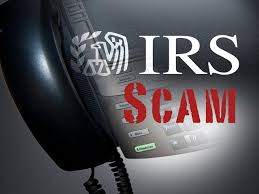Last year, the Internal Revenue Service and the Treasury Inspector General for Tax Administration received 90,000 calls into its hot line. The reason? Complaints that individuals claiming to be from the IRS were demanding tax payments and personal financial information. TIGTA indicated that over 1,000 people have fallen prey to IRS phone scams. Nationwide, a total of $5 million in personal funds is estimated to have been stolen from people contacted.
It is as important to be aware of the need for security from IRS phone scams like this as to be aware of the need for security from theft in your home. Below are some tips to avoid being fooled by someone claiming to be from the IRS.
- The first tip is straight out of the IRS’s mouth. IRS Commissioner John Koskinen says “taxpayers should remember their first contact with the IRS will not be a call from out of the blue, but through official correspondence sent through the mail. A big red flag for these scams are angry, threatening calls from people who say they are from the IRS and urging immediate payment. This is not how we operate.”
- Second, the IRS will never require credit card, debit card or prepaid card information over the telephone. Actual IRS agents will not ask for this.
- Third, the IRS does not demand immediate payment on the telephone. If anyone tells you they will take some sort of action to enforce payment owed right after the conversation ends, they are not from the IRS. People will receive notification of required actions or payments like this through the mail.
- Fourth, do not be fooled by identifiers that seem to prove the caller is from the IRS, such as a toll-free telephone number or a badge number. They may look authentic, but they can be faked.
Be aware. Don’t be the victim of IRS phone scams this tax season.







